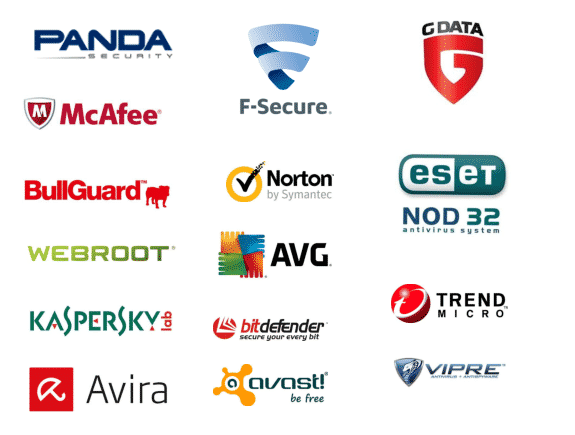When it comes to protecting your computer from all kinds of unsavory elements, most people immediately shift their focus to antivirus software. And why not? There are currently over 100,000 known viruses in the world. Viruses can wreak havoc on your computer and lead to costly data loss, among other things.
But are there any downsides to using antivirus software? We review some pros and cons:

Pros of Antivirus Software
The obvious one – virus protection
People often unknowingly click on ‘spammy’ links on particular websites or tend to open email attachments without much thought to where it came from. Visiting sites that are not trustworthy or opening random attachments can deploy a virus on your computer – but this is where antivirus software can help protect the data on your computer.
Firewall protection
Many antivirus software providers include a firewall feature in their product, which effectively blocks any unauthorized incoming connection to your computer’s network. This also prevents hackers from breaking into your computer to dig up valuable personal information.
Spam protection
Spam can be an annoying thing to deal with – especially when you end up opening unimportant emails and ads during business hours. Good antivirus software will protect your computer from spam.
Spyware protection
Spyware and identity theft are increasingly becoming a problem, which is why you see so many different kinds of antivirus software claiming to be the best one in terms of spyware protection. Find the right antivirus product, and you can prevent people from discretely and remotely installing software to steal personal information from your computer.
Cons of Antivirus Software
Computer and network might slow down
Since installing and running an antivirus program can often take up a lot of resources, your computer and network may slow down as a result. Antivirus programs are often highly memory intensive and can take up quite a bit of space on your internal hard disk. However, this doesn’t apply to every single antivirus software available (paid or free), and by upping your system’s memory and having adequate free disk space, you can get around the issue.
You’re not 100% protected
Just because your antivirus program advertises as giving “complete protection,” there are still security loopholes that can make you vulnerable to attacks. This is especially true of free antivirus software, which often doesn’t come with a strong enough firewall to offer the right level of protection. Furthermore, with specific antivirus programs, hackers can still exploit shortcomings in the operating system and network of your computer to gain an entry point.
‘Incomplete’ firewall protection
Despite many antivirus programs claiming to install a firewall on your computer, this is often insufficient. To have complete protection against hacks, you must install a proper firewall software or certified internet security suite to enjoy full protection.
Potential software conflicts
Since specific antivirus programs are not 100% effective, it may prompt you prompted to install more than one application, in addition to a string of anti-malware and anti-spyware programs. This can cause software conflicts and also slow down your computer.
- Tulip Mania – The Story of One of History’s Worst Financial Bubbles - May 15, 2022
- The True Story of Rapunzel - February 22, 2022
- The Blue Fugates: A Kentucky Family Born with Blue Skin - August 17, 2021